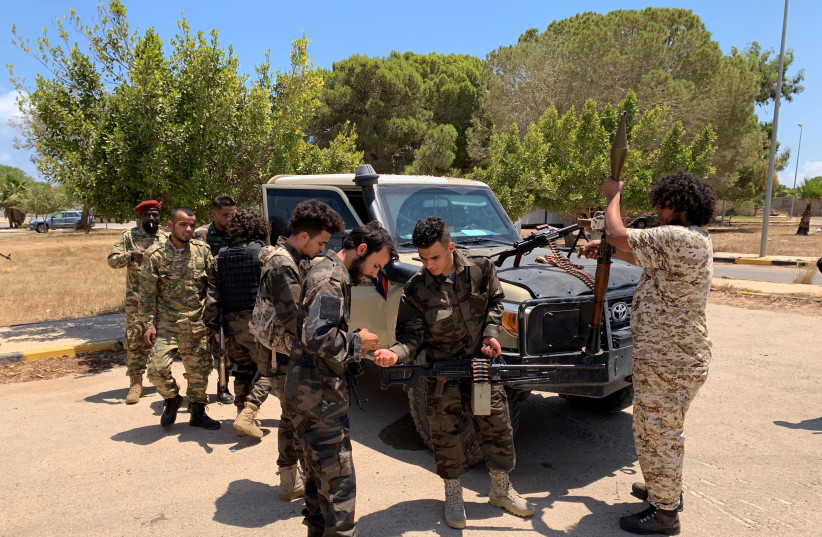Fernando Espinoza’s travels throughout parts of the Middle East were rare in recent years, as the region faced hurdles from chaos and threats to foreigners that make such travel difficult. Most recently he was in Libya.
Libya has become synonymous with the kind of chaos that some countries sunk into after the 2011 Arab Spring. Sadly, despite the intervention of countries such as the US and Europe – and even Russia and Turkey – they have not become more stable. Espinoza disappeared in Libya in November and CNN has only recently reported that he is being held there, but it is unclear for what reason.
The US embassy told CNN after the call that "inquiries were being handled by the State Department," the report says. When asked by CNN for comment on Fernando's status, “the State Department said they were ‘aware of the detention of a US citizen in Libya.’”
What else is going on is not clear. Libya is a divided country and the government in Tripoli is ostensibly recognized by the UN and backed by Turkey and Qatar, but it is also embattled as it is trying to postpone elections. Meanwhile, eastern Libya is held by Khalifa Haftar, who has close ties to Egypt. The Gadaffi family, deposed by rebels in 2011, also seems to want to make a comeback.
The problem in Libya is that it is never clear who is fully in charge and there are militias and rival parts of the government. Espinoza is an innocent man caught up in this. His most recent videos show archaeological sites he visited in Libya. He was deeply interested in the fabric of the Middle East and in seeing places that most tourists would never venture to. When he was in Iraq in 2017, he had posted about going south from the Kurdish region to the area of Iraq where there is a Shi’ite majority. He later posted in October of this year: “How ironic – well, I made it out in one piece both times I went.”

Many of his posts are a mix of public and private parts but they show the diverse depth of his love for all the areas he traveled in the Middle East and North Africa. They show an insatiable love for the languages, history and cultures of the region.
CNN reports that “Espinoza, a 29-year-old American teacher and former US Navy submariner, disappeared in Libya on November 9, five weeks after arriving in the country to start a new job at an international school in Tripoli.” The school, called the International School of Martyrs, doesn’t seem to have replied to numerous requests to explain what happened. This does not make Libya’s struggling government or the authorities or institutions like the school look good. It is important that foreign teachers not be disappeared or detained in extrajudicial manners.
Some would posit that Espinoza was lucky so far in all his travels in the region not to have been detained before by the mosaic of militias and other groups that have taken over its non-governed areas. The problem is that this illustrates what has happened to the region: the way that gangs and groups and even governments that are backed by the international community too often operate with impunity and how innocent people can be impacted by that impunity.
Libya is at a crossroads and has sought to have elections and emerge from a decade of civil conflict. Detaining an innocent traveler who wanted to help teach illustrates how the country has a chance now to show whether it will release those like Espinoza, or whether it wants to slide back into the problems it has faced over the last decade.
